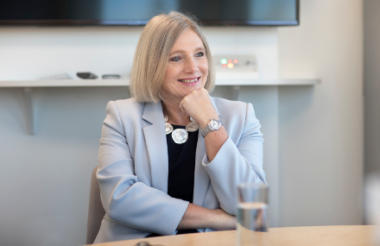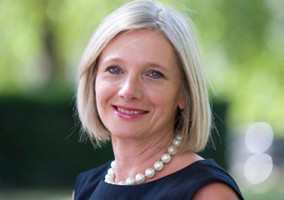By the time she leaves in July 2024, Helen Stephenson will have been the longest serving chief executive at the Charity Commission.
“I feel very privileged to have led the regulator through this particular period, which has been quite a turbulent one,” she says. “It’s time to hand over to somebody else.”
She is taking some time to think about her next steps, she tells Civil Society.
‘We’re not here to be an enemy’
Stephenson says the relationship between the charity sector and the regulator has “definitely improved” since she joined the Commission in 2017.
“As a regulator, what I want in the relationship is one where we’re not friends, but we’re not foe. We are the regulator. So, we’re not here to be everybody’s best friend, but at the same time, we’re not here to be an enemy.
“So, I wanted to have that relationship where we had respect and understanding of one another and I certainly think that has improved.”
One of the things she is proudest of is providing support for trustees through the regulator’s five-minute guides and a contact centre that is open five days a week. When she started it was open three mornings a week.
“The balance of those two things: both resourcing and supporting is absolutely key for us to be an effective regulator. I think we’ve made real progress in that over my time, and I’m really proud of that.”
Would have liked to collaborate with sector bodies earlier
When asked if she had any regrets about her time in office, Stephenson says she does not like the term.
“I don’t think in terms of regrets, but there are things where I think that it’s great that it happened but I’d have liked it to happen earlier.”
One example of this is the collaboration between the regulator and charity sector bodies like NCVO and ACEVO, she says.
“One of the good things that happened as a result of Covid-19 was the way in which the Commission and sector bodies were able to work together to support the charity sector and we’ve continued since the pandemic and we’ve moved on to other challenges, like with Ukraine and the cost-of-living crisis.
“We understand each other’s distinct role, but at the same time, feel the importance of working together to share intelligence and to understand and support the sector.
“I suppose I’m glad that the pandemic brought that about and I would’ve liked that to have happened earlier in my career.”
‘We’re not a complaints ombudsman’
On starting her role, Stephenson was surprised by the amount of how her inbox was “filled with stuff that wasn’t particularly nice”, she says.
One of the misconceptions about the regulator is that it is a complaints ombudsman, Stephenson adds.
“Certainly, our next phase is to develop a strategy and to be very clear both with charities but also with the public on where we can and where we can’t take regulatory action.
“If somebody wants to complain about a charity, we’re not a complaints ombudsman. I think that would be something that I feel that people don’t understand necessarily and which we’d like to clarify more.”
Stephenson’s role will be advertised on 7 September, with interviews to be completed by the end of the year.
She wants to see someone who is a “great leader” replace her and take the regulator’s “great staff onto the next level”.
“Anybody would be proud to lead them.”











